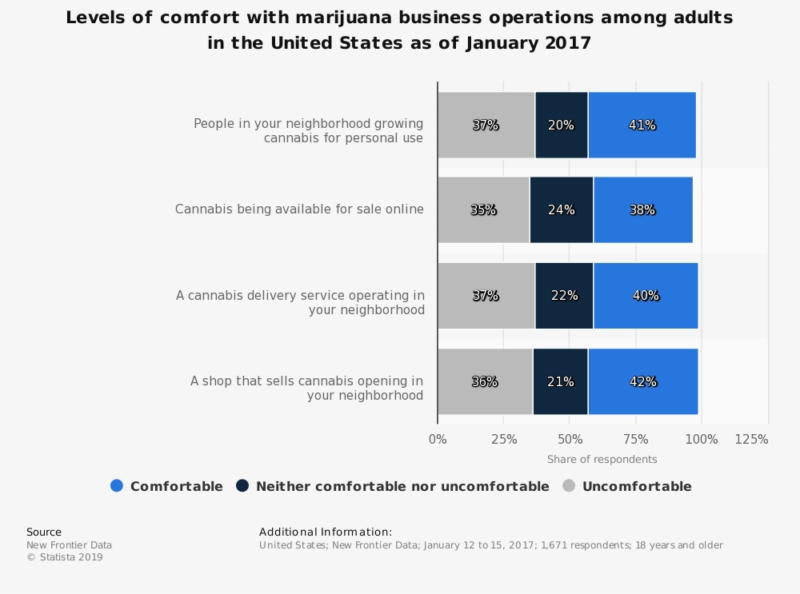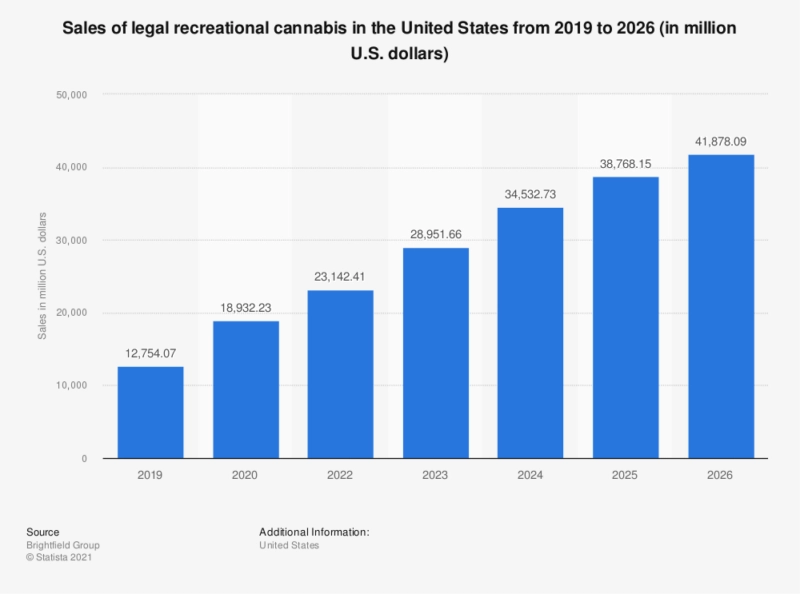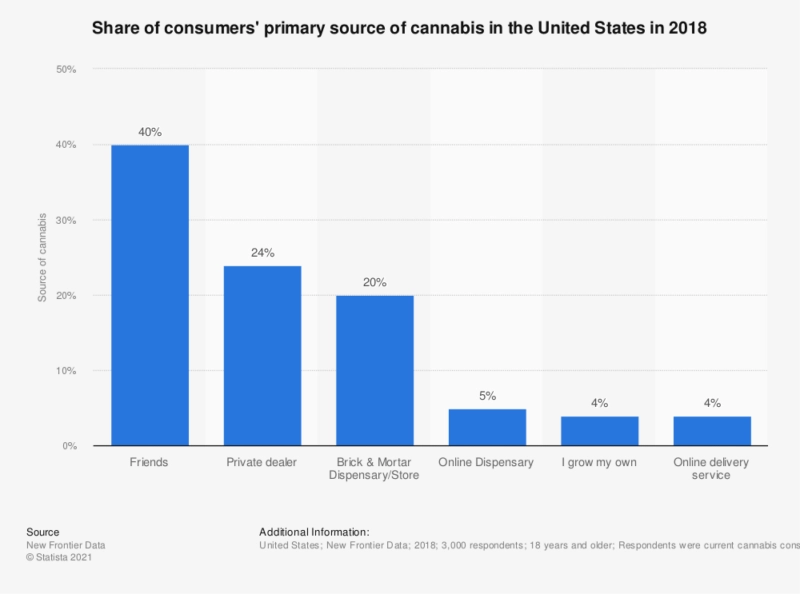Uber Eats to Offer “Baked Goods” with Canadian Cannabis Partnership
Thanks to the accelerated need for buying goods online since the start of the pandemic, digital on-demand orders are a retail expectation even for a still growing market like cannabis sales. As the cannabis dispensary market continues to grow and with potential industry reform on the way, statistics show consumers would like to see even more growth as 42 percent of Americans reported they are comfortable with a cannabis-selling shop opening in their neighborhood. Uber Eats in Canada has taken this one step further, adding cannabis as a category to its platform.

Although on the surface it sounds like cannabis delivery could be an option, Uber is only allowing users to place an order through their app, and customers can pick it up at a dispensary location in Ontario within an hour. But this initial foray by companies like Uber into the cannabis industry may only be the beginning as the U.S. considers federally legalizing marijuana, which could mean even more explosive growth for the cannabis industry. Eric Recker, the SVP, Sales & Operations of Indicaloud, a premier producer of U.S. grown, high-quality delta 8 products, thinks these new developments could present potential market opportunities for investors and retailers.
“Cannabis delivery is a massive revenue stream and big opportunity not only for the companies who provide the cannabis delivery, but also the retailers who are able to add in a new revenue stream and potentially gather a market share from customers who may not be able to make it into their brick-and-mortar store,” said Recker.

With so much growth potential in the U.S. on the table, sales of legal recreational cannabis are expected to reach an estimated 42 billion U.S. dollars by 2026. Legal marijuana sales are forecasted to steadily increase with each consecutive year. Surfside, a customer acquisition platform that specializes in activating and expanding first party data for marketing and measurement, is currently focusing on the cannabis industry. Surfside’s co-founder, Jon Lowen, believes Uber could use the Canadian model and apply it to the U.S. once the legal coast is clear, which could help expand their customer base and profits.
“I think that it’s a really great entry point for Uber Eats in order to start understanding what the cannabis market can do for them as a platform, but even more so for the retailers who now have access to this brand new subset of consumers who are very used to having access to this app and are used to the shopping experience and they can hopefully get new customers through the awareness and through the trust that Uber Eats brings to this market,” said Lowen.
As the cannabis industry is gaining steam, many wonder if the underground cannabis market will continue to thrive. In 2018, a poll revealed 40 percent of cannabis users stated their primary source was friends, and 24 percent used a private dealer.

Michael Sassano is the Founder and CEO of Somai Pharmaceuticals, an Ireland-based company focused on cultivation and production of cannabinoid-containing pharmaceutical products throughout the European Union, thinks this new online marketplace will help combat the underground market and help people purchase safe and legal weed more readily.
“Every move that standardizes cannabis into the distribution and sales is a step to combatting the black market. Not only is access important, but competitive pricing,” said Sassano. “Probably what you’ll end up seeing is the large cannabis companies, smaller cannabis companies, and eventually the emergence of craft farmers similar to local markets.”






